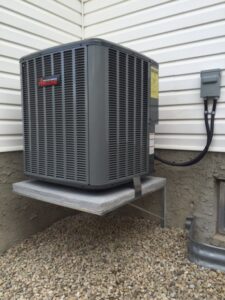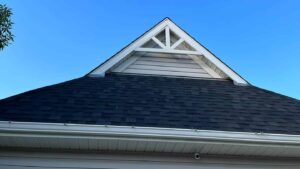When winter arrives, the last think you want is for your furnace to give out. A leaking furnace can be a reason for failure and it is also the most hazardous of all. It’s important to service your furnace regularly to ensure that all the components are working in top condition.
When a furnace operates, it produces carbon monoxide, which is a natural by-product of burning fuel. This gas leaves your furnace through the heat exchanger, but it is possible for the gas to enter your home if the vents are blocked or damaged.
Here are a few things you need to keep in mind while trying to prevent leaks from your furnace:
Table of Contents
ToggleAirflow restrictions
When the furnace airflow is blocked, it works harder to burn the fuel in order to heat your home. This causes the furnace to discharge greater amount of exhaust fumes which are generated by the burners. Usually, these exhaust fumes are removed from your house through the heat exchanger and vents, but some of it may leak and enter your home. The leaking of carbon monoxide can be harmful to you and your family. You should have a carbon monoxide detector. If your detector alarms, turn off the furnace completely, leave your home and contact a professional HVAC contractor immediately.
Check filters and blowers
Before entering your home through the vents, air passes through the filter of the furnace. If the filter is dirty, the air may carry dust particles with it, which will eventually circulate in your home. Same goes for the blower. Make sure the blower motor and the fan inside the furnace are not covered with dust, as that will make the motor work harder to blow the air out, and may carry some dust and debris along with it. Be regular with your HVAC check ups to ensure optimal performance of your appliances and experience risk-free comfort in your home.
Furnace condensation
Condensation is usually channeled from your furnace to the floor drain. The reason for water leaking around your furnace could be either because the condensation pipe is clogged or it has developed breaks in the line. It is also possible that the floor drain itself could be clogged. You can have the floor drain unclogged by somebody or you can do it yourself.
Furnace humidifier
There are chances that the humidifier inside your furnace could be leaking water. This usually happens when some components are overdue for cleaning or replacement. If you annually service your furnace, then this should not be the case, as the HVAC contractor is well-qualified to understand if any of the components require replacement or cleaning.
If you have faced any of these issues in the past, or are facing them right now, call a licensed HVAC contractor. Having your furnace inspected right before you start using it will ensure peak performance and energy efficiency.








